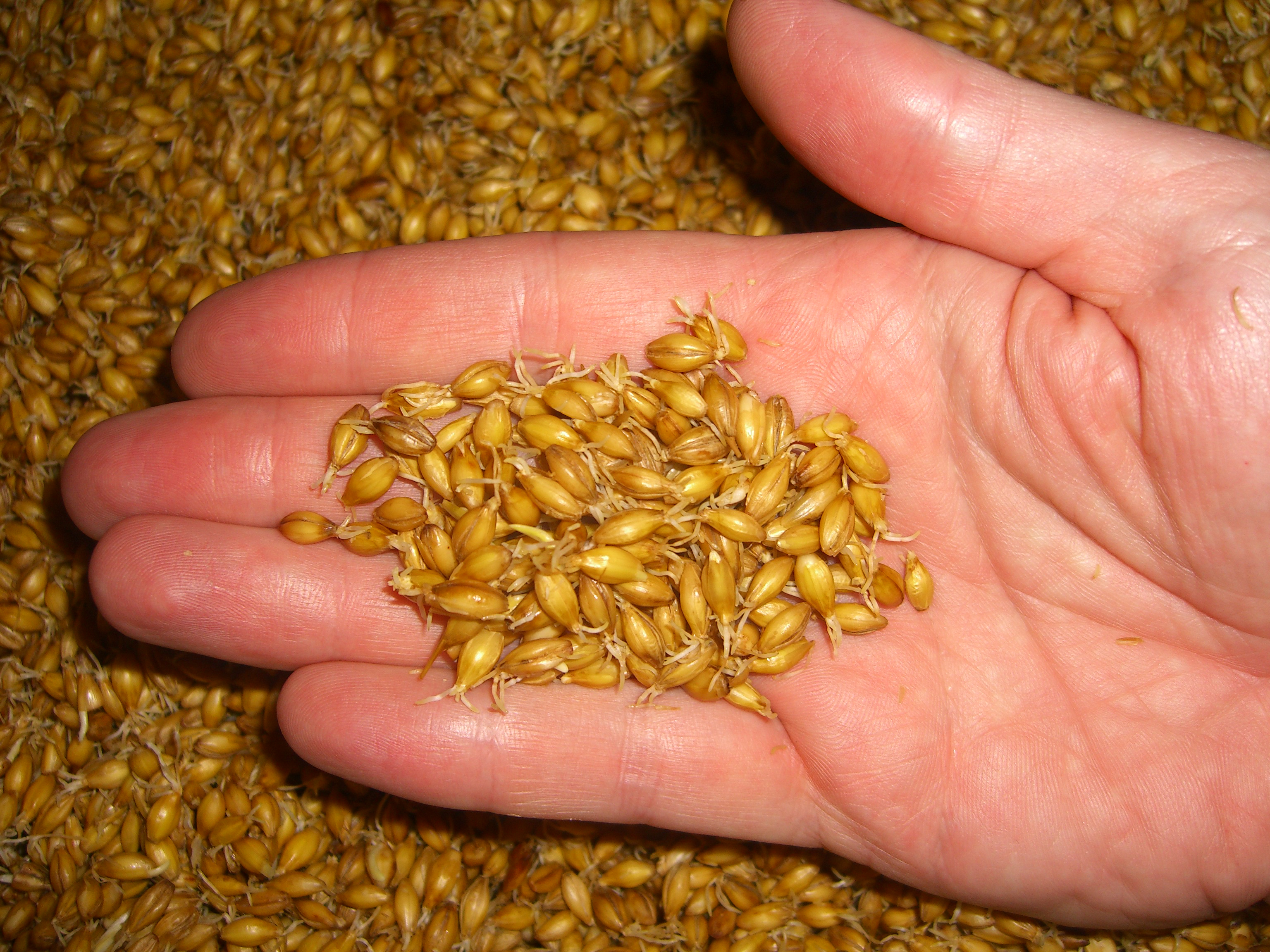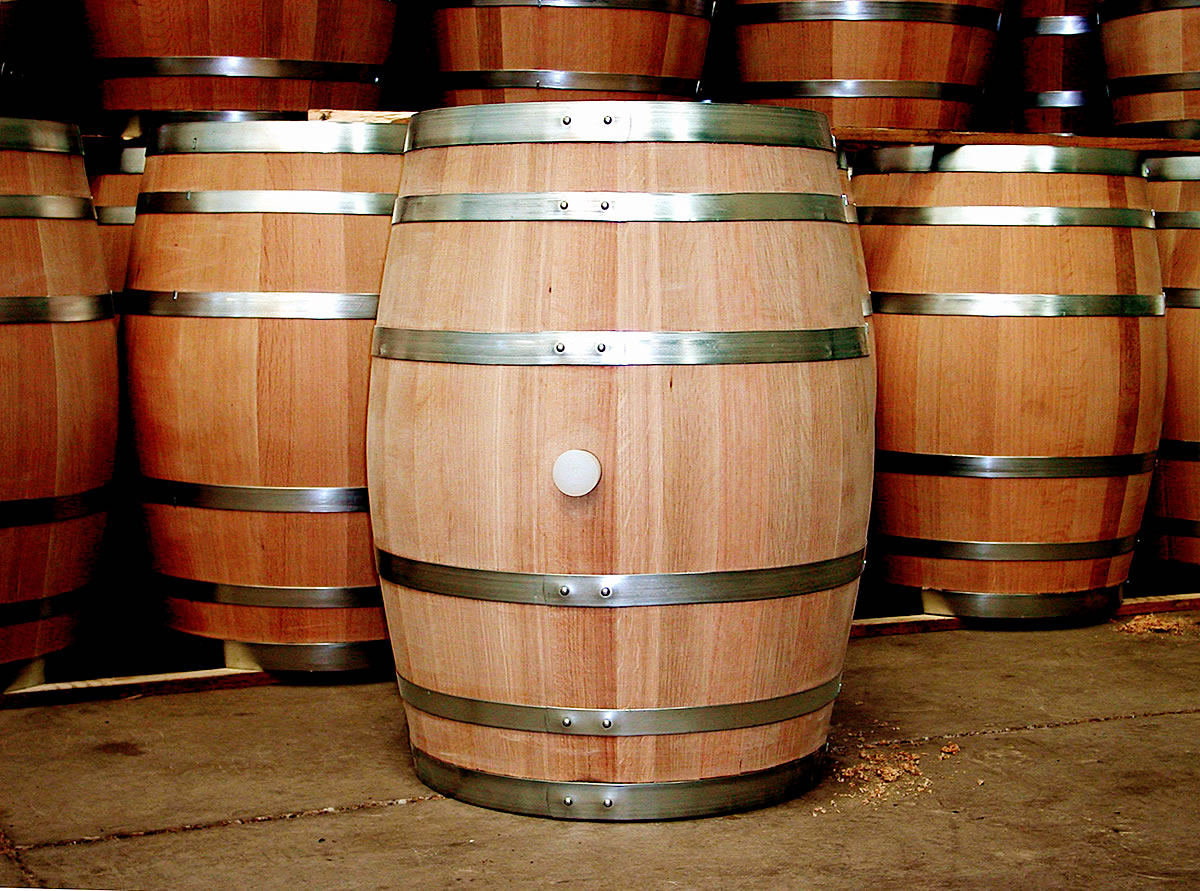|
Killyloch
Killyloch is a malt whisky which was distilled at the Glenflagler Malt Distillery and was first distilled and bonded in February 1965. Glenflagler Malt Distillery was a historic "Lowland" malt distillery and was closed and demolished by Inver House Distillers Limited in July 1985. The whisky was produced mainly as a filling for blends and was never officially bottled as a single malt. However, there was once instance of a 36-year-old released by Inver House in 2003. Very little of Killyloch's liquid remains in existence. In the 2010s, a bottle of 36-year-old Killyloch 1967 Limited Edition sold on an online auction for £1,550. The name Killyloch is a corruption of a local loch, Lillyloch and is believed to have occurred as a result of an incorrect stencil being used to mark the early barrels A barrel or cask is a hollow cylindrical container with a bulging center, longer than it is wide. They are traditionally made of wooden staves and bound by wooden or metal ho ... [...More Info...] [...Related Items...] OR: [Wikipedia] [Google] [Baidu] |
Inver House Distillers Limited
Inver House Distillers Limited is a malt whisky distiller, based in Airdrie, Scotland. The company is a subsidiary of ThaiBev, one of the largest alcoholic-beverage companies in Southeast Asia. Inver House Distillers owns and operates five distilleries: Balblair distillery, Balmenach distillery, Knockdhu distillery, Pulteney distillery, and Speyburn distillery, and sells blended whisky under their own name. History The company was established in 1964 as a subsidiary of the American company, Publicker Industries of Philadelphia. Publicker Industries had successfully launched Inver House Rare, a brand of blended Scotch whisky in 1956. However, as a result of industry demand, there were not sufficient stocks to meet sales. Under the chairmanship of Mr S. S. Neuman, a site was acquired at Airdrie in March 1964, and a fully integrated complex was constructed, including 2 malt distilleries— Glenflagler and Killyloch—and a grain distillery Garnheath. Following the death ... [...More Info...] [...Related Items...] OR: [Wikipedia] [Google] [Baidu] |
Malt
Malt is germinated cereal grain that has been dried in a process known as " malting". The grain is made to germinate by soaking in water and is then halted from germinating further by drying with hot air. Malted grain is used to make beer, whisky, malted milk, malt vinegar, confections such as Maltesers and Whoppers, flavored drinks such as Horlicks, Ovaltine, and Milo, and some baked goods, such as malt loaf, bagels, and Rich Tea biscuits. Malted grain that has been ground into a coarse meal is known as "sweet meal". Malting grain develops the enzymes (α-amylase, β-amylase) required for modifying the grains' starches into various types of sugar, including monosaccharide glucose, disaccharide maltose, trisaccharide maltotriose, and higher sugars called maltodextrines. It also develops other enzymes, such as proteases, that break down the proteins in the grain into forms that can be used by yeast. The point at which the malting process is stopped affects the starch-to-enz ... [...More Info...] [...Related Items...] OR: [Wikipedia] [Google] [Baidu] |
Whisky
Whisky or whiskey is a type of distilled alcoholic beverage made from fermented grain mash. Various grains (which may be malted) are used for different varieties, including barley, corn, rye, and wheat. Whisky is typically aged in wooden casks, which are typically made of charred white oak. Uncharred white oak casks previously used for the aging of sherry are also sometimes used. Whisky is a strictly regulated spirit worldwide with many classes and types. The typical unifying characteristics of the different classes and types are the fermentation of grains, distillation, and aging in wooden barrels. Etymology The word ''whisky'' (or ''whiskey'') is an anglicisation of the Classical Gaelic word (or ) meaning "water" (now written as in Modern Irish, and in Scottish Gaelic). This Gaelic word shares its ultimate origins with Germanic ''water'' and Slavic ''voda'' of the same meaning. Distilled alcohol was known in Latin as ("water of life"). This was translated into Old I ... [...More Info...] [...Related Items...] OR: [Wikipedia] [Google] [Baidu] |
Glenflagler
Glenflagler distillery, (also known as Glen Flagler) was located in Airdrie, North Lanarkshire, Scotland, produced the Lowland Single Malts, Lowland single malt whisky Glen Flagler. Glen Flagler distillation commenced on 25 February 1965 and the distillery was subsequently closed in July 1985. The Glen Flagler brand has subsequently been reformed under new ownership, and using a blend of Scotch whiskies to recreate the original flavours and the site was converted in an Inver House Distillers, Inver House warehouse facility. Glen Flagler was used in the Hankey Bannister 40 Year old blend, which was voted the world's best blended Scotch whisky at the World Whiskies Awards Collectable Bottles Its bottles command prices between $600-$1500, and it is sold as a collectable whisky in auction houses such as Sotheby's, Christie's and Bonhams. In December 2019, a premium bottle of Glen Flagler sold for a record $273,000 to an investor in Dubai. This was two months before a bottle of M ... [...More Info...] [...Related Items...] OR: [Wikipedia] [Google] [Baidu] |
Malt
Malt is germinated cereal grain that has been dried in a process known as " malting". The grain is made to germinate by soaking in water and is then halted from germinating further by drying with hot air. Malted grain is used to make beer, whisky, malted milk, malt vinegar, confections such as Maltesers and Whoppers, flavored drinks such as Horlicks, Ovaltine, and Milo, and some baked goods, such as malt loaf, bagels, and Rich Tea biscuits. Malted grain that has been ground into a coarse meal is known as "sweet meal". Malting grain develops the enzymes (α-amylase, β-amylase) required for modifying the grains' starches into various types of sugar, including monosaccharide glucose, disaccharide maltose, trisaccharide maltotriose, and higher sugars called maltodextrines. It also develops other enzymes, such as proteases, that break down the proteins in the grain into forms that can be used by yeast. The point at which the malting process is stopped affects the starch-to-enz ... [...More Info...] [...Related Items...] OR: [Wikipedia] [Google] [Baidu] |
Distillery
Distillation, or classical distillation, is the process of separating the components or substances from a liquid mixture by using selective boiling and condensation, usually inside an apparatus known as a still. Dry distillation is the heating of solid materials to produce gaseous products (which may condense into liquids or solids); this may involve chemical changes such as destructive distillation or cracking. Distillation may result in essentially complete separation (resulting in nearly pure components), or it may be a partial separation that increases the concentration of selected components; in either case, the process exploits differences in the relative volatility of the mixture's components. In industrial applications, distillation is a unit operation of practically universal importance, but is a physical separation process, not a chemical reaction. An installation used for distillation, especially of distilled beverages, is a distillery. Distillation includes the f ... [...More Info...] [...Related Items...] OR: [Wikipedia] [Google] [Baidu] |
Loch
''Loch'' () is the Scottish Gaelic, Scots language, Scots and Irish language, Irish word for a lake or sea inlet. It is Cognate, cognate with the Manx language, Manx lough, Cornish language, Cornish logh, and one of the Welsh language, Welsh words for lake, llwch. In English English and Hiberno-English, the Anglicisation, anglicised spelling lough is commonly found in place names; in Lowland Scots and Scottish English, the spelling "loch" is always used. Many loughs are connected to stories of lake-bursts, signifying their mythical origin. Sea-inlet lochs are often called sea lochs or sea loughs. Some such bodies of water could also be called firths, fjords, estuary, estuaries, straits or bays. Background This name for a body of water is Insular Celtic languages, Insular CelticThe current form has currency in the following languages: Scottish Gaelic, Irish language, Irish, Manx language, Manx, and has been borrowed into Scots language, Lowland Scots, Scottish English, Iri ... [...More Info...] [...Related Items...] OR: [Wikipedia] [Google] [Baidu] |
Stencil
Stencilling produces an image or pattern on a surface, by applying pigment to a surface through an intermediate object, with designed holes in the intermediate object, to create a pattern or image on a surface, by allowing the pigment to reach only some parts of the surface. The stencil is both the resulting image or pattern and the intermediate object; the context in which ''stencil'' is used makes clear which meaning is intended. In practice, the (object) stencil is usually a thin sheet of material, such as paper, plastic, wood or metal, with letters or a design cut from it, used to produce the letters or design on an underlying surface by applying pigment through the cut-out holes in the material. The key advantage of a stencil is that it can be reused to repeatedly and rapidly produce the same letters or design. Although aerosol or painting stencils can be made for one-time use, typically they are made with the intention of being reused. To be reusable, they must remain int ... [...More Info...] [...Related Items...] OR: [Wikipedia] [Google] [Baidu] |
Barrels
A barrel or cask is a hollow cylindrical container with a bulging center, longer than it is wide. They are traditionally made of wooden staves and bound by wooden or metal hoops. The word vat is often used for large containers for liquids, usually alcoholic beverages; a small barrel or cask is known as a keg. Modern wooden barrels for wine-making are made of French common oak (''Quercus robur''), white oak ('' Quercus petraea''), American white oak (''Quercus alba''), more exotic is Mizunara Oak all typically have standard sizes: Recently Oregon Oak ( Quercus Garryana) has been used. *"Bordeaux type" , *"Burgundy type" and *"Cognac type" . Modern barrels and casks can also be made of aluminum, stainless steel, and different types of plastic, such as HDPE. Someone who makes barrels is called a "barrel maker" or cooper (coopers also make buckets, vats, tubs, butter churns, hogsheads, firkins, kegs, kilderkins, tierces, rundlets, puncheons, pipes, tuns, butts, p ... [...More Info...] [...Related Items...] OR: [Wikipedia] [Google] [Baidu] |
Scottish Malt Whisky
Scottish usually refers to something of, from, or related to Scotland, including: *Scottish Gaelic, a Celtic Goidelic language of the Indo-European language family native to Scotland *Scottish English *Scottish national identity, the Scottish identity and common culture *Scottish people, a nation and ethnic group native to Scotland *Scots language, a West Germanic language spoken in lowland Scotland *Symphony No. 3 (Mendelssohn), a symphony by Felix Mendelssohn known as ''the Scottish'' See also *Scotch (other) *Scotland (other) *Scots (other) *Scottian (other) *Schottische The schottische is a partnered country dance that apparently originated in Bohemia. It was popular in Victorian era ballrooms as a part of the Bohemian folk-dance craze and left its traces in folk music of countries such as Argentina ("chotis"Span ... * {{disambiguation Language and nationality disambiguation pages ca:Escocès ... [...More Info...] [...Related Items...] OR: [Wikipedia] [Google] [Baidu] |





